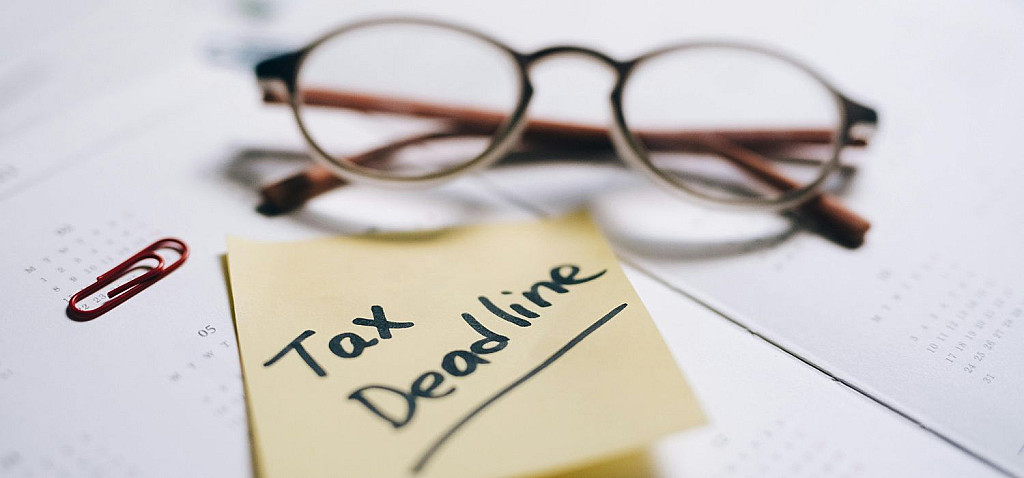Myth: "I Don’t Need to Worry About Tax Deadlines Until January" – The Risks of Last-Minute Filing
16th Apr 2025

The Common Mindset Around Tax Deadlines
Each year, as the January 31st deadline for self-assessment tax returns approaches, countless individuals and business owners find themselves scrambling to gather necessary documents and submit their returns. A prevailing belief exists that tax deadlines are a concern only as January nears. However, this mindset can lead to significant challenges. Procrastination in tax filing not only increases stress but also exposes taxpayers to surprise liabilities with short notice to settle payment.
Many taxpayers mistakenly believe that filing their tax return early means they must settle their tax liability right away. In reality, you can submit your tax return as soon as the tax year ends, starting from 6 April. However, you don’t have to pay the tax liability until the following 31 January, giving you up to 10 months to gather the funds for your tax bill.
The Risks of Last-Minute Filing
1. HMRC Penalties and Interest
HMRC sends reminders to customers well before the deadline. If you fail to submit your tax return on time, HMRC will issue a penalty notice that outlines the amount you owe, the reason for the charge, and any necessary actions you need to take.
The penalties for filing a tax return late are as follows:
- A £100 fixed penalty, which applies even if there’s no tax to pay, or if the tax due is paid on time.
- Daily penalties of £10 per day, up to a maximum of £900 (after 3 months).
- 5% of the tax due or £300, whichever is greater (after 6 months).
- An additional 5% or £300 charge, whichever is greater (after 12 months).
If you believe the penalty is unfair or you have a reasonable excuse for filing your tax return late, you can appeal the penalty. HMRC provides guidance on how to appeal online.
Penalties can not only affect your finances but also disrupt your financial planning. By filing your tax return early, you can reduce the risk of unexpected financial setbacks.
2. Increased Risk of Errors
Rushing to meet the deadline increases the likelihood of making mistakes. When you’re pressed for time, it’s easy for things to slip through the net.
Common errors include:
- Registering with HMRC too late to file a tax return.
- Miscalculating income and expenses.
- Claiming personal expenses as business costs.
- Failing to claim allowable expenses, leading to a higher Income Tax bill.
- Underreporting income, which is considered tax evasion and can lead to serious penalties.
If you file your tax return early and later discover an error, you can still correct it for that tax year.
If HMRC identifies minor mistakes in your Self Assessment tax return, they may fix them or reach out to resolve the issue. Depending on the mistake, you could either owe additional tax or receive a refund if you’ve overpaid.
Starting the process early allows ample time to ensure accuracy, consult with professionals if needed, and review all entries meticulously.
3. Cash Flow Strain from Unexpected Tax Bills
Filing at the last minute leaves little room for financial planning. Discovering a significant tax liability close to the payment deadline can strain your cash flow, especially if funds aren't readily available. Early filing provides clarity on any amounts owed, allowing for better budgeting and the opportunity to explore payment options or adjustments to mitigate financial stress.
Benefits of Early Filing & Planning
1. Receive your tax refund sooner
If you have overpaid tax during the previous year, HMRC will owe you a refund (also known as a tax rebate.) After the tax year ends, HMRC will send you a P800 form which will explain for to claim your refund. Processing times can vary, typically ranging from five days to eight weeks, depending on several factors.
The time is takes for HMRC to process your tax return largely depends on their workload, with January being their busiest month. By filing your tax return early, you can avoid long delays and receive your refund more quickly.
2. More Time to Claim Reliefs and Allowances
Early preparation of your tax return offers the advantage of thoroughly exploring available reliefs and allowances. This proactive approach ensures you don't overlook potential deductions, such as those for charitable donations, business expenses, or investment losses, ultimately reducing your tax liability.
3. Better Cash Flow Management
Understanding your tax obligations well in advance enables more effective cash flow management and gives you more time to plan for the payment deadline. With the extra time, you can strategically set aside funds and even explore ways to earn interest on the money reserved for taxes.
Depending on your risk tolerance, you can grow your money while waiting to pay your tax bill by saving or investing. For a low-risk approach, consider options like high-interest savings accounts to safely earn a return.
4. Reduced Stress and Accountant Availability
Initiating the tax filing process early significantly reduces stress associated with looming deadlines. Additionally, accountants and tax professionals have greater availability outside the peak season, allowing for more personalised approach and potentially lower fees. This ensures any complex issues are addressed comprehensively without the pressure of time constraints.
5. 30 December deadline
Another benefit of filing your tax return early is the opportunity to pay any tax owed through PAYE. This option is available if you already pay tax under PAYE and the amount you owe is £3,000 or less. HMRC will automatically adjust your tax code to collect the owed tax.
For the 2024/25 tax year, the adjustment will be made in your 2026/27 tax code, allowing the tax to be collected in 12 equal instalments over the 2026/27 tax year.
Please note that this option will not be available if you do not have enough PAYE income for HMRC to collect the tax, if more than 50% of your PAYE income is already deducted in tax, or if your tax liability exceeds twice what you normally pay.
Choosing to pay tax through PAYE eliminates the need to make a lump-sum payment by 31 January 2025. It also allows you to pay in instalments without the need for a Time to Pay arrangement, and these instalments are interest-free. In contrast, if you pay tax in instalments under a Time to Pay plan, interest is charged. The first payment for PAYE will not be due until April 2026, offering an additional cash flow benefit.
However, the downside is that your take-home pay will be lower as a result.
A Practical Scenario: The Consequences of Delaying Tax Filing
Imagine, Sarah, a self-employed consultant who leaves filing her tax return until the last minute. As January approaches, she realises she has yet to gather receipts, invoices, and expense records. She’ll need to gather all the essential paperwork, such as P45s, P60s, expenses, invoices, and bank statements. Noting that these records are dating back nearly two years, which some banks may not provide easily. In the rush to meet the deadline, she overlooks deductible expenses and makes a miscalculation in her return. Sarah could not only be potentially overpaying in tax but making small errors in the rush to meet the deadline.
A few weeks later, she receives a notice from HMRC highlighting an error, leading to additional charges and a stressful dispute process.
Had Sarah started her tax preparation earlier, she would have had time to carefully review her finances, maximise deductions, ensure accuracy and avoid unnecessary enquiries.
Conclusion
The misconception that tax deadlines are only a January concern can lead to unnecessary penalties, financial strain, and stress. Taking a proactive approach to tax preparation offers several benefits, including the opportunity to claim all eligible reliefs, better cash flow management, and a smoother, less stressful filing experience.
It’s never too early to get your finances in order, particularly if you need to file a self-assessment tax return each year. Getting organised in advance is a smart way to ensure you can quickly balance the books before the next 31 January deadline.
At Wright Vigar, we understand the intricacies of tax planning and the advantages of timely filing. Our team of experts are ready to guide you through the tax process efficiently. Don't wait until the last minute - contact us today to ensure your tax affairs are in order.
Written by

